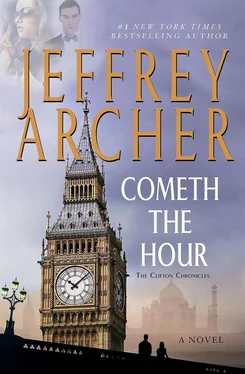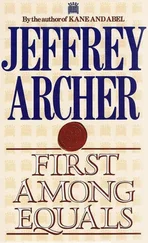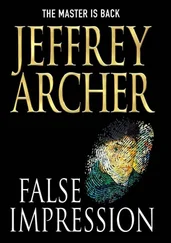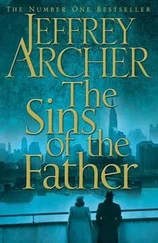When the King entered the great hall, half a dozen trumpeters nestling in the archways high above them struck up a fanfare, and three hundred guests — the men in white tie and tails, the women in brilliantly colored gowns — rose to greet the royal party. Yelena, Emma and Harry were guided to three chairs in the middle of the row behind the King.
Once Harry was seated, he began to study the layout of the room. There was a raised platform at the front, with a wooden lectern placed at its center. Looking down from the lectern, a speaker would see eleven high-backed blue velvet chairs set out in a semicircle, where that year’s Laureates would be seated. But, on this occasion, one of the chairs would be left empty.
Harry glanced up at the packed balcony, where there was no sign of an empty seat. But then, this was not one of those occasions you might decide to miss because you’d received a better offer.
The trumpets sounded a second time to announce the arrival of the Nobel Laureates, who processed into the hall to warm applause and took their places in the semicircle of seats.
Once everyone was seated, Hans Christiansen, the chairman of the Swedish Academy, made his way up onto the stage and took his place behind the lectern. He looked up at, for him, a familiar scene, before he began his speech, welcoming the prizewinners and guests.
Harry glanced nervously down at the cards resting in his lap. He reread his opening paragraph and felt the same raw emotion he always experienced just before making a speech: I wish I was anywhere but here.
“Sadly,” continued Christiansen, “this year’s winner of the Nobel Prize for Literature, the poet and essayist Anatoly Babakov, cannot be with us this evening. He suffered a severe stroke yesterday morning, and tragically died on his way to hospital. However, we are privileged to have with us Mr. Harry Clifton, a close friend and colleague of Mr. Babakov’s, who has agreed to speak on his behalf. Will you please welcome to the stage, the distinguished author and president of English PEN, Mr. Harry Clifton.”
Harry rose from his place and made his way slowly up onto the stage. He placed his speech on the lectern and waited for the generous applause to die down.
“Your Majesties, Your Royal Highnesses, distinguished Nobel Laureates, ladies and gentlemen, you see standing before you a rude mechanical who has no right to be in such august company. But today the paperback has the privilege of representing a limited edition, who has recently joined your ranks.
“Anatoly Babakov was a unique man, who was willing to sacrifice his life to create a masterpiece, which the Swedish Academy has acknowledged by awarding him literature’s highest accolade. Uncle Joe has been published in thirty-seven languages and in one hundred and twenty-three countries, but it still cannot be read in the author’s native tongue, or in his homeland.
“I first heard of Anatoly Babakov’s plight when I was an undergraduate at Oxford and was introduced to his lyrical poetry that allowed one’s imagination to soar to new heights, and his insightful novella, Moscow Revisited, evoked a sense of that great city in a way I have never experienced before or since.
“Some years passed before I once again became acquainted with Anatoly Babakov, as president of English PEN. Anatoly had been arrested and sentenced to twenty years’ imprisonment. His crime? Writing a book. PEN mounted a worldwide campaign to have this literary giant released from an out-of-sight — but not out-of-mind — gulag in Siberia, so that he could be reunited with his wife, Yelena, whom I’m delighted to tell you is with us this evening, and will later receive her husband’s prize on his behalf.”
A burst of sustained applause allowed Harry to relax, look up and smile at Anatoly’s widow.
“When I first visited Yelena in the tiny three-room flat in Pittsburgh in which she was living in exile, she told me she had secreted the only surviving copy of Uncle Joe in an antiquarian bookshop on the outskirts of Leningrad. She entrusted me with the responsibility of retrieving the book from its hiding place and bringing it back to the West, so that it could finally be published.
“As soon as I could, I flew to Leningrad and went in search of a bookshop hidden in the backstreets of that beautiful city. I found Uncle Joe concealed in the dust jacket of a Portuguese translation of A Tale of Two Cities, next to a copy of Daniel Deronda . Worthy bedfellows. Having captured my prize I returned to the airport, ready to fly home in triumph.
“But I had underestimated the Soviet regime’s determination to stop anyone reading Uncle Joe. The book was found in my luggage and I was immediately arrested and thrown in jail. My crime? Attempting to smuggle a seditious and libellous work out of Russia. To convince me of the gravity of my offense, I was placed in the same cell as Anatoly Babakov, who had been ordered to persuade me to sign a confession stating that his book was a work of fiction, and that he had never worked in the Kremlin as Stalin’s personal interpreter but had been nothing more than a humble schoolteacher in the suburbs of Moscow. Humble he was, but an apologist for the regime he was not. If he had succeeded in convincing me to repeat this fantasy, the authorities had promised him that a year would be knocked off his sentence.
“The rest of the world now acknowledges that Anatoly Babakov not only worked alongside Stalin for thirteen years, but that every word he wrote in Uncle Joe was a true and accurate account of that totalitarian regime.
“Having destroyed the book, the inheritors of that regime then set about attempting to destroy the man who wrote it. The award of the Nobel Prize for Literature to Anatoly Babakov shows how lamentably they failed and ensures that he will never be forgotten.”
During the prolonged applause that followed, Harry looked up to see Emma smiling at him.
“I spent fifteen years attempting to get Anatoly released, and when I finally succeeded it turned out to be a pyrrhic victory. But even when we were locked up in a prison cell together, Anatoly didn’t waste a precious second seeking my sympathy, but spent every waking moment reciting the contents of his masterpiece, while I, like a voracious pupil, devoured his every word.
“When we parted, he to return to the squalor of a gulag in Siberia, me to the comfort of a manor house in the English countryside, I once again possessed a copy of the book. But this time it was not locked in a suitcase, but in my mind, from where the authorities could not confiscate it. As soon as the wheels of the plane had lifted off from Russian soil, I began to write down the master’s words. First on BOAC headed paper, then on the backs of menus and finally on rolls of toilet paper, which was all that was still available.”
Laughter broke out in the hall, which Harry hadn’t anticipated.
“But allow me to tell you a little about the man. When Anatoly Babakov left school, he won the top scholarship to the Moscow Foreign Languages Institute, where he studied English. In his final year, he was awarded the Lenin Medal, which ironically sealed his fate, because it gave Anatoly the opportunity to work in the Kremlin. Not a job offer you turn down unless you wish to spend the rest of your life unemployed, or worse.
“Within a year, he unexpectedly found himself serving as the Russian leader’s principal translator. It didn’t take him long to realize that the genial image Stalin portrayed to the world was merely a mask concealing the evil reality that the Soviet dictator was a thug and a murderer, who would happily sacrifice the lives of tens of thousands of his people if it prolonged his survival as chairman of the party and president of the Presidium.
Читать дальше












